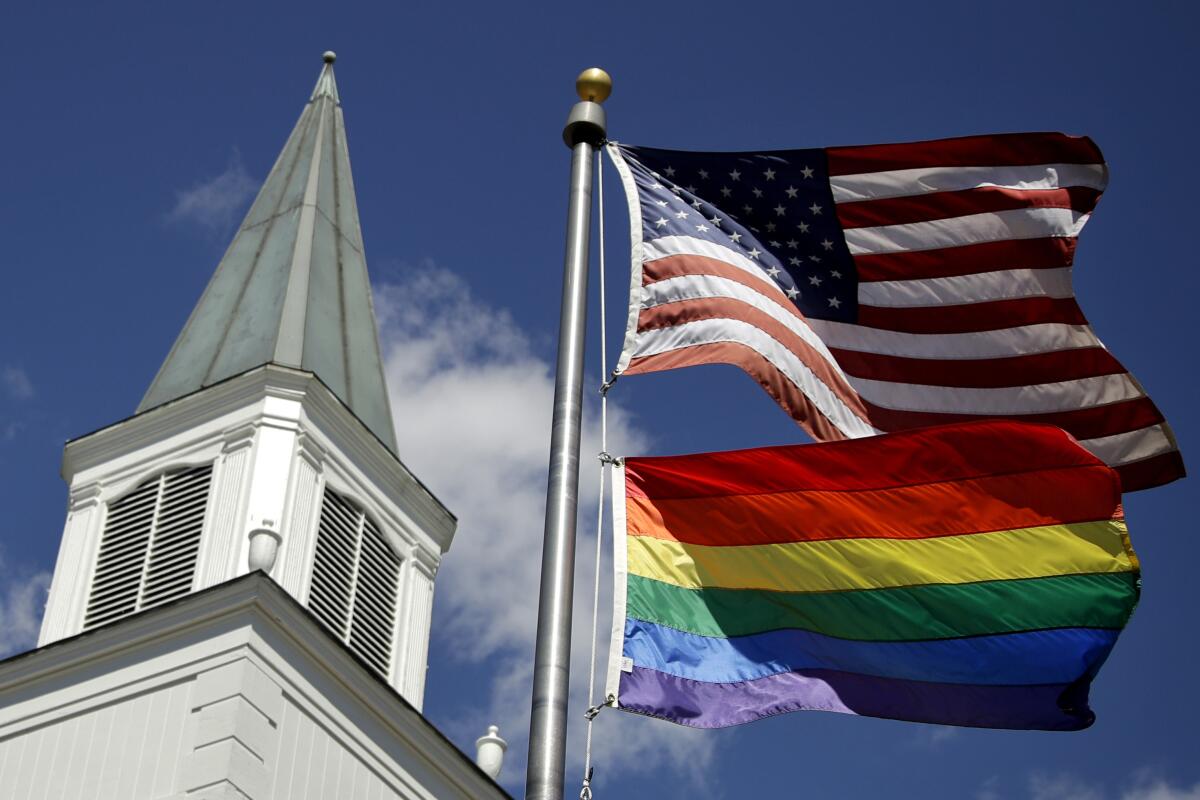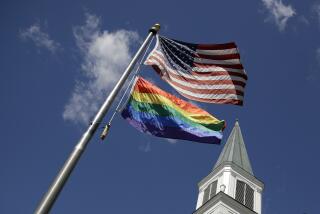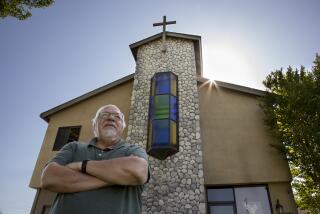United Methodist conservatives detail plans for a breakaway

- Share via
Conservative leaders within the United Methodist Church unveiled plans Monday to form a new denomination, the Global Methodist Church, with a doctrine that does not recognize same-sex marriage.
The move could hasten the long-expected breakup of the UMC over differing approaches to LGBTQ inclusion. For now, the UMC is the largest mainline Protestant church in the U.S. and second only to the Southern Baptist Convention, an evangelical denomination, among U.S. Protestant churches.
Due to the COVID-19 pandemic, the UMC’s General Conference — at which the schism would be debated — has been postponed for two consecutive years, and is now scheduled to take place in Minneapolis starting in late August 2022.
The Rev. Keith Boyette, a Methodist elder from Virginia who chairs the Global Methodist initiative, said he and his allies do not want to wait that long to formally leave the UMC. They have asked that the topic of schism be added to the tightly limited agenda of a special one-day general conference to be conducted online May 8.
“The church is basically stalemated right now,” Boyette said. “We don’t believe an additional year is going to be helpful for anybody.”
However, Louisiana-based Bishop Cynthia Fierro Harvey, who heads the UMC’s Council of Bishops, said debate over a schism would involve “delicate deliberations” and attempting to conduct them online in May “does not seem wise or ethical.”
If the issue is not addressed on May 8, Boyette said he and his allies would be willing to delay until the 2022 General Conference, but only if UMC centrists and progressives remain committed to previous agreements about a breakup. Any lessening of those commitments might prompt the conservatives to bring the new church into existence, Boyette said.
Differences over same-sex marriage and the ordination of LGBTQ clergy have simmered for years in the UMC, and came to a head in 2019 at a conference in St. Louis where delegates voted 438-384 to strengthen bans on LGBTQ-inclusive practices. Most U.S.-based delegates opposed that plan and favored LGBTQ-friendly options; they were outvoted by U.S. conservatives teamed with most of the delegates from Methodist strongholds in Africa and the Philippines.
In the aftermath of that meeting, many moderate and liberal clergy made clear they would not abide by the bans, and various groups worked on proposals to let the UMC split along theological lines.
The most prominent plan, the Protocol of Reconciliation & Grace Through Separation, has some high-level support, including from the Council of Bishops and from the Global Methodist group. Under the protocol, conservative congregations and regional bodies would be allowed to separate from the UMC and form a new denomination. They would receive $25 million in UMC funds and be able to keep their properties.
On a website launched Monday, the Global Methodist organizers said the new denomination would allow women to serve at all levels and seek a membership that is “ethnically and racially diverse.”
Regarding LGBTQ issues, organizers said the denomination would adhere to “the traditional understanding of Christian marriage as a covenant between a man and a woman and as God’s intended setting for human sexual expression.”
Bishop Karen Oliveto of the UMC’s Mountain Sky region — who in 2016 became the UMC’s first openly lesbian bishop — said in an email that “it is heartbreaking when the Body of Christ fragments itself.”
“I pray that those who are called into the Global Methodist Church will find themselves free to be the people whom God calls them to be,” she added.
Formed in a merger in 1968, the United Methodist Church claims about 12.6 million members worldwide, including nearly 7 million in the United States.
The UMC’s demography is illustrated by the apportionment of voting delegates for the 2022 General Conference: About 56% come from the U.S., 32% from Africa, 6% from the Philippines and most of the rest from Europe.
More to Read
Sign up for Essential California
The most important California stories and recommendations in your inbox every morning.
You may occasionally receive promotional content from the Los Angeles Times.










